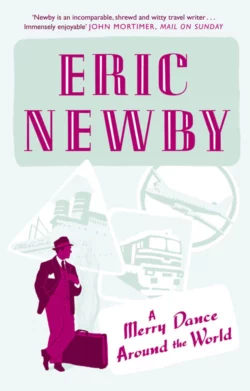A Merry Dance Around the World With Eric Newby

Eric Newby
Тип: электронная книга
Жанр: Отдых, туризм
Язык: на английском языке
Стоимость: 384.72 ₽
Статус: В продаже
Издательство: HarperCollins
Дата публикации: 17.04.2024
Отзывы: Пока нет Добавить отзыв
О книге: A collection of writing from Britain′s best-loved travel writer, ‘A Merry Dance around the World’ is the culmination of a lifetime of adventure.A collection of writing from eleven books by Britain′s best-loved travel writer, A Merry Dance around the World is the culmination of a lifetime′s adventures, from the birth of Eric Newby in 1919 at the ′ghastly hour′ of 3.45am, to Herculean cycling escapades in his seventies through the wiles of the Irish winter. An astonishing catalogue of disasters and misunderstandings, Newby′s compassionate grace and sharp wit ensure that every adventure is as charming, hilarious and wild as his last.Including extracts from his masterpiece of love and courage in wartime, Love and War in the Apennines, travelling epiphanies against the breathtaking backdrop of A Short Walk in the Hindu Kush and the memorable excursions of the long-suffering and truly heroic Wanda Newby on bikes, in boats and planning daring prison escapes. A brilliant introduction for any Newby newcomer, or handy collection for the intrepid Newby veteran traveller, A Merry Dance around the World is a whirlwind tour around the globe, guided by the forefather of the modern comic travel book.